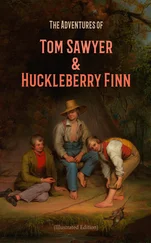COTTLE'S "FREE VERSION OF THE PSALMS"
Diamond + oxygen = charcoal. Even so on the fire-spark of his zeal did Cottle place the King-David diamonds, and caused to pass over them the oxygenous blast of his own inspiration, and lo! the diamond becomes a bit of charcoal.
FRIENDSHIP AND MARRIAGE
"Ich finde alles eher auf der Erde, so gar Wahrheit und Freude, als Freundschaft."—Jean Paul. 6
This for the motto—to examine and attest the fact, and then to explain the reason. First, then, there are the extraordinary qualifications demanded for true friendship, arising from the multitude of causes that make men delude themselves and attribute to friendship what is only a similarity of pursuit, or even a mere dislike of feeling oneself alone in anything. But, secondly, supposing the friendship to be as real as human nature ordinarily permits, yet how many causes are at constant war against it, whether in the shape of violent irruptions or unobserved yet constant wearings away by dyspathy, &c. Exemplify this in youth and then in manhood. First, there is the influence of wives, how frequently deadly to friendship, either by direct encroach, or, perhaps, intentional plans of alienation! Secondly, there is the effect of families, by otherwise occupying the heart; and, thirdly, the action of life in general, by the worldly-wise, chilling effects of prudential anxieties.
Corollary. These reflections, however, suggest an argument in favour of the existing indissolubility of marriage.
To be compelled to make it up, or consent to be miserable and disrespected, is indeed a coarse plaister for the wounds of love, but so it must be while the patients themselves are of coarse make and unhealthy humours.
IMAGINATION
His imagination, if it must be so called, is at all events of the pettiest kind—it is an imaginunculation . How excellently the German Einbildungskraft expresses this prime and loftiest faculty, the power of co-adunation, the faculty that forms the many into one— In-eins-bildung! Eisenoplasy, or esenoplastic power, is contradistinguished from fantasy, or the mirrorment, either catoptric or metoptric—repeating simply, or by transposition—and, again, involuntary [fantasy] as in dreams, or by an act of the will.
[See Biog. Lit. , cap. x.; Coleridge's Works , iii. 272. See also Blackwood's Magazine , March 1840, No. ccxciii., Art. The Plagiarisms of S. T. Coleridge.]
PUBLIC OPINION AND THE SERVICES
Ministers, as in the Admiralty, or War Office, compared to managers of theatres. The numerous absurd claims at length deaden their sense of judgment to real merit, and superinduce in the mind an anticipation of clamorous vanity. Hence the great importance of the public voice, forcing them to be just. This, how illustrated by the life of Nelson—the infamous coldness with which all his claims were received—especially Mr. Wyndham's answer, July 21, 1795. And no wonder! for such is the state of moral feeling even with the English public, that an instance of credulity to an ingenious scheme which has failed in the trial will weigh more heavily on a minister's character than to have stifled in the birth half-a-dozen such men as Nelson or Cochrane, or such schemes as that of a floating army. Nelson's life is a perpetual comment on this.
SERMONS ANCIENT AND MODERN
Of moral discourses and fine moral discussions in the pulpit—"none of your Methodist stuff for me." And, yet, most certain it is, that never were either ministers or congregations so strict in all morality as at the time when nothing but fine moral discourses (that is calculations in self-love) would have driven a preacher from the pulpit—and when the clergy thought it their pulpit-duty to preach Christ and Him crucified, and the why and the wherefore—and that the soberest, law-obeying, most prudent nation in the world would need Him as much as a nation of drunkards, thieves and profligates. How was this? Why, I take it, those old parsons thought, very wisely, that the pulpit was the place for truths that applied to all men, humbled all alike (not mortified one or two, and sent the rest home, scandal-talking with pharisaic "I thank thee, God, I am not as so and so, but I was glad to hear the parson"), comforted all, frightened all, offended all, because they were all men —that private vices depend so much on particular circumstances, that without making the pulpit a lampoon shop, (or, even supposing the genius of him who wrote Isaac Jenkins, without particulars not suited to the pulpit) that it would be a cold generality affair—and that, therefore, they considered the pulpit as one part of their duty, but to their whole congregation as men , and that the other part of their duty, which they thought equally binding on them, was to each and every member of that congregation as John Harris, or James Tomkins, in private conversation—and, like that of Mr. Longford, sometimes to rebuke and warn, sometimes to comfort, sometimes and oftener to instruct, and render them capable of understanding his sermon. In short they would preach as Luther, and would converse as Mr. Longford to Isaac Jenkins.
[ The History of Isaac Jenkins, a Moral Fiction. By Thomas Beddoes, M.D., 1793].
HEAVINESS MAY ENDURE FOR A NIGHT
With a loving generous man whose activity of intellect is exerted habitually on truth and events of permanent, or, at least, general interest still warmed and coloured by benevolent enthusiasm self-unconsciously, and whose heart-movements are all the property of the few, whom he dearly loves—with such a man, for the vast majority of the wrongs met with in life, that at all affect him, a one-night's sleep provides the oblivion and the cure—he awakes from his slumbers and his resentment at the same moment. Yesterday is gone and the clouds of yesterday. The sun is born again, and how bright and joyous! and I am born again! But O! there may be wrongs, for which with our best efforts for the most perfect suppression, with the absence, nay, the impossibility of anger or hate, yet, longer, deeper sleep is required for the heart's oblivion, and thence renewal—even the long total sleep of death.
To me, I dare avow, even this connects a new soothing with the thought of death, an additional lustre in anticipation to the confidence of resurrection, that such sensations as I have so often had after small wrongs, trifling quarrels, on first awaking in a summer morn after refreshing sleep, I shall experience after death for those few wounds too deep and broad for the vis medicatrix of mortal life to fill wholly up with new flesh—those that, though healed, yet left an unsightly scar which, too often, spite of our best wishes, opened anew at other derangements and indispositions of the mental health, even when they were altogether unconnected with the wound itself or its occasions—even as the scars of the sailor, the relics and remembrances of sword or gun-shot wounds (first of all his bodily frame giving way to ungenial influences from without or from within), ache and throb at the coming in of rain or easterly winds, and open again and bleed anew, at the attack of fever, or injury from deficient or unwholesome food—that even for these I should enjoy the same delightful annihilation of them, as of ordinary wrongs after sleep.
I would say to a man who reminded me of a friend's unkind words or deeds which I had forgiven—Smoking is very well while we are all smoking, even though the head is made dizzy by it and the candle of reason burns red, dim and thick; but, for Heaven's sake, don't put an old pipe to my nose just at breakfast time, among dews and flowers and sunshine.
FOOTNOTES:
6["I find all things upon earth, even truth and joy, rather than friendship."]
Читать дальше












